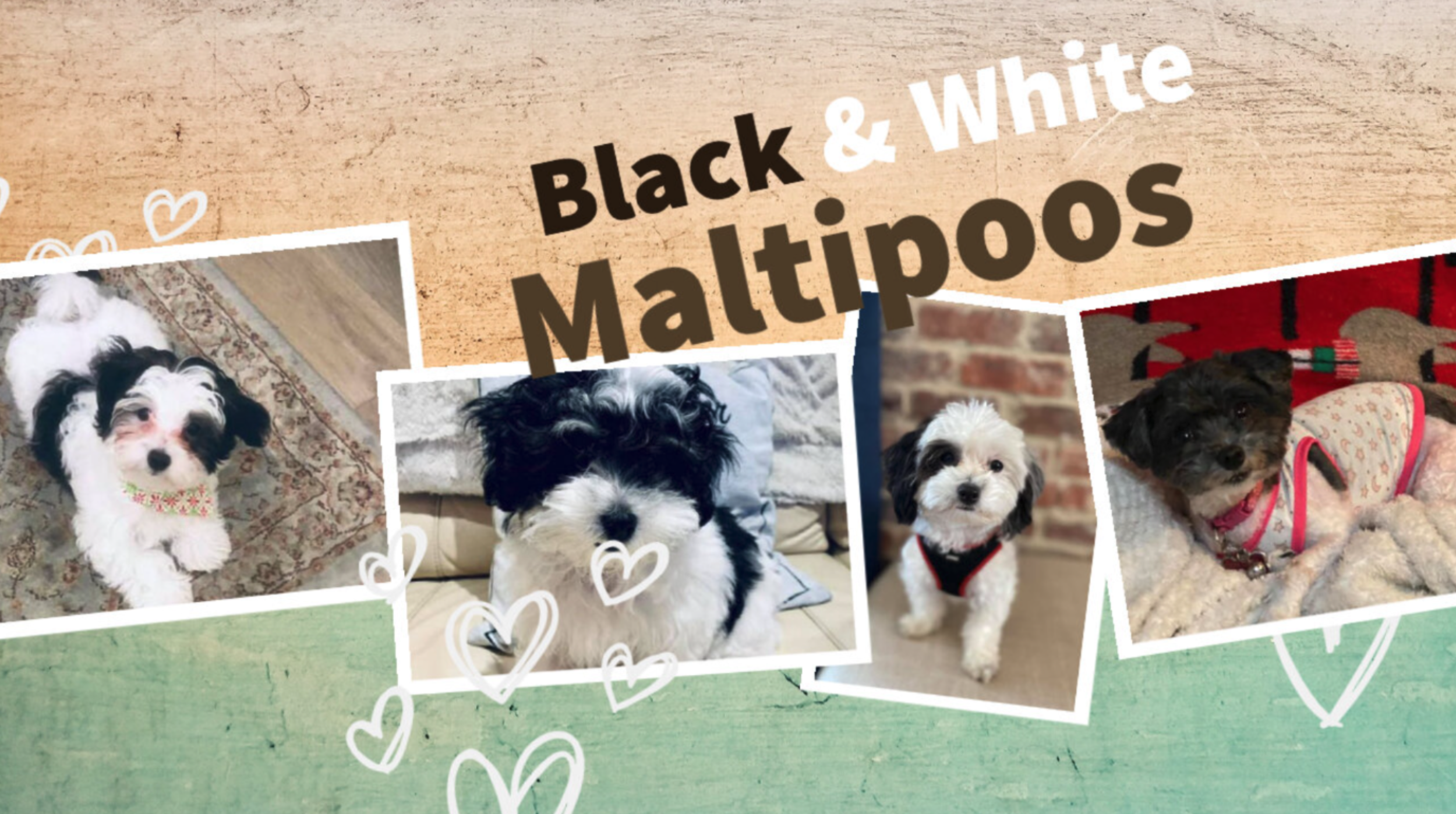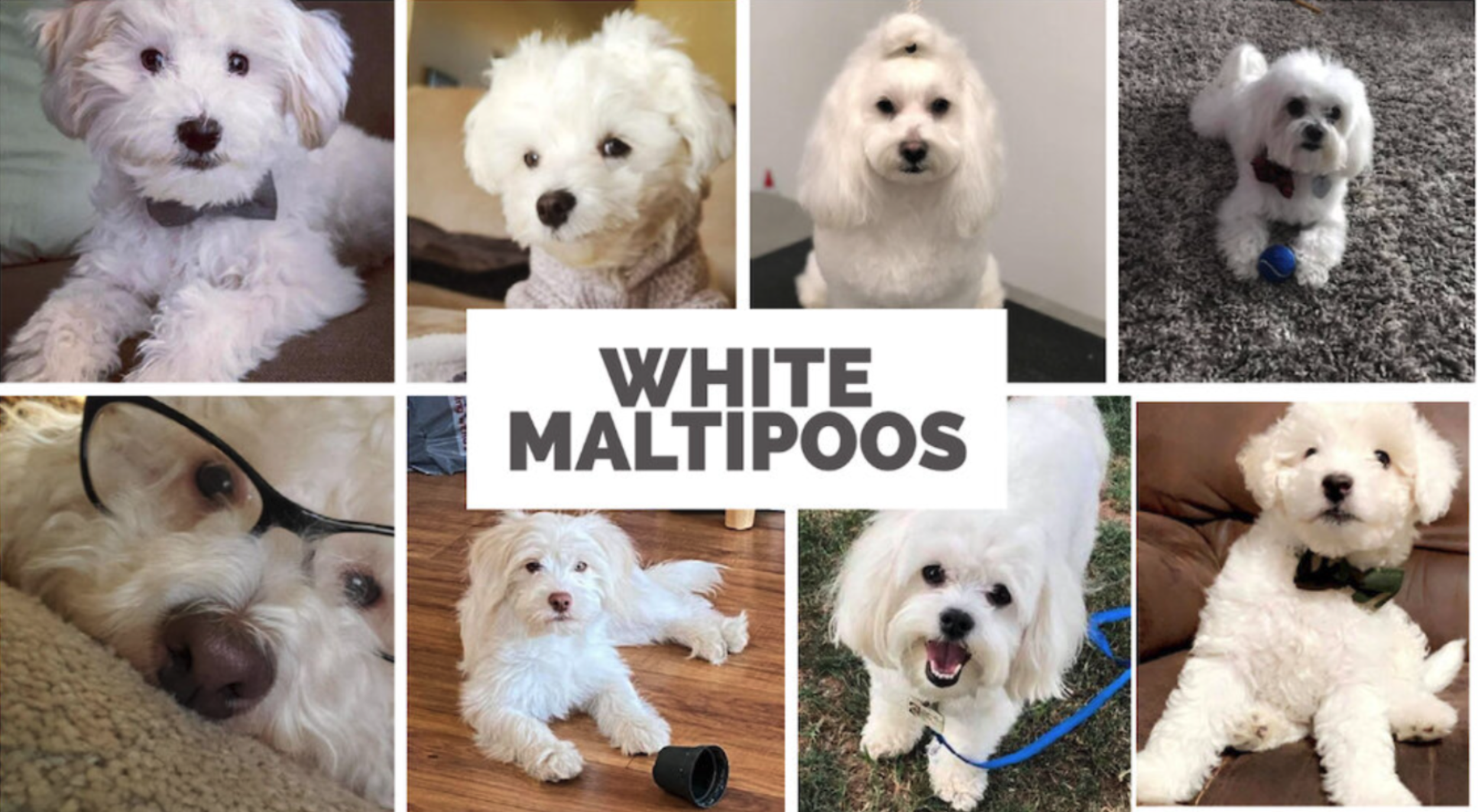11 Best Care Tips For Your Cockapoo
Bringing a Cockapoo puppy home marks the beginning of a delightful journey, filled with infectious energy and adorable antics. These furry bundles of joy, though exciting, also present challenges and necessitate significant lifestyle adjustments. The first few weeks are a whirlwind of excitement and accidents, requiring ample care, attention, and love. This early stage is crucial for establishing good behaviors and habits, setting the tone for a harmonious life together.
Though demanding, the adventure of owning a Cockapoo promises a wealth of love, joy, and companionship. The effort invested in the early days, with training, diet, socialization, and healthcare, contributes to your Cockapoo's wellbeing for many happy years to come. Despite the challenges, the rewards are immeasurable, with the promise of a lifetime of shared happiness and companionship. Welcome to the beautiful world of Cockapoo parenting!
1. The Crucial First 2 Weeks with Your New Cockapoo
Welcoming a Cockapoo puppy into your family is an exciting time, but it's also a time of significant change for you and your new furry friend. The first two weeks are particularly crucial, as they set the stage for your Cockapoo's growth, development, and integration into your family. Here's a guide to navigate this crucial period:
Feeding Routine: Establishing a consistent feeding routine from the outset is critical. Cockapoos, being a small to medium-sized breed, will typically require feeding three to four times per day as puppies. Choose a high-quality puppy food that is suited to the nutritional needs of Cockapoos. Always ensure fresh water is available, and maintain consistency in the feeding times to aid digestion and develop a routine.
House Training: House training your Cockapoo should begin as soon as you bring your puppy home. These intelligent dogs can quickly learn where they should do their business, especially if you're consistent with training. Each time your Cockapoo successfully goes in the designated area, reward them with praise or a treat to reinforce the behavior.
Sleeping Arrangements: Your Cockapoo puppy will need a quiet, comfortable place to sleep. Many Cockapoo owners find that crate training is an effective method that provides a secure space for the puppy and assists with house training. Ensure the crate is comfortable, with a soft bed, and consider adding a blanket or soft toy for additional comfort.
Play and Socialization: During these initial weeks, it's essential to start gently introducing your Cockapoo to different sounds, sights, and experiences to begin their socialization process. Playtime is equally important for bonding, encouraging physical activity, and releasing puppy energy. Make sure playtime is safe and positive, and always supervise interactions with people and other pets.
Vet Appointment: It's recommended to schedule your Cockapoo's first vet visit within the first week of bringing them home. This appointment will allow your vet to perform a general health check, discuss the necessary vaccination schedule, and provide advice on feeding and general care. This is also a great opportunity for you to ask any questions you might have about your Cockapoo's health and well-being.
Remember, this fortnight will be a significant adjustment period for both you and your Cockapoo. Providing patience, consistency, and lots of love will help your new puppy settle into their forever home.
2. Healthcare Essentials: Vaccinations and Regular Check-Ups
Owning a Cockapoo puppy comes with responsibilities, and one of the most important is ensuring that your pup is healthy and protected from common canine diseases. A crucial part of this care involves keeping up with necessary vaccinations and regular health check-ups.
During the first year of your Cockapoo's life, they will require several vaccinations. These vaccines are vital for building up your pup's immune system and providing protection against potentially serious diseases. The most common vaccinations include:
Distemper: This viral disease affects the respiratory and nervous systems in dogs and can be fatal. Vaccination against distemper is a core component of your puppy's vaccine schedule.
Parvovirus: This highly contagious and severe disease can lead to fatal gastrointestinal illness. Puppies, in particular, are vulnerable to parvovirus.
Hepatitis: Also known as Adenovirus, this vaccine protects against a virus that can cause liver disease, eye damage, and respiratory problems.
Rabies: A fatal disease that affects the nervous system. Rabies vaccination is legally required in many places due to its risk to humans as well.
Each of these vaccines will be given on a schedule recommended by your vet, typically starting from around six to eight weeks of age, with boosters following at regular intervals.
Additionally, it's essential to discuss with your vet about parasite control, as puppies can be vulnerable to internal parasites like worms and external parasites like fleas and ticks. Regular treatments can help keep your Cockapoo parasite-free and comfortable.
Finally, consider the timing for spaying or neutering your Cockapoo. Early spaying and neutering, usually performed around six months of age, can prevent unwanted pregnancies and can have health benefits such as reducing the risk of certain cancers and preventing problematic behaviors related to hormonal cycles.
It's crucial to establish a good relationship with a trusted vet who can guide you through these healthcare essentials and provide the best care for your Cockapoo puppy. Regular check-ups can help catch any potential health issues early and ensure your Cockapoo leads a healthy, happy life.
3. Essential Supplies for Your Cockapoo
As you prepare to bring your new Cockapoo puppy home, it is vital to have all the necessary supplies ready for your pup's arrival. The following items should be a part of your shopping list:
Dog Crate: One of the fundamental needs for your Cockapoo is a safe and suitable crate. This serves not only as your puppy's personal space but also a secure location for them, especially during their sleep or when you can't supervise them. It's crucial to choose a crate that allows your pup to stand, turn around, and stretch out comfortably. This cozy space will become a safe haven for them.
Bed: Having a comfortable bed for your Cockapoo is another key necessity. A bed that fits well inside the crate and offers soft padding for your puppy will provide comfort and security. Look for a bed that is machine washable, durable, and suited for small to medium-sized dogs.
Snuggle Puppy: A snuggle puppy is a plush toy designed to mimic the heartbeat and warmth of another living being. This can be a tremendous comfort for your Cockapoo, especially during the initial days when they might miss their littermates or mother. This comforting toy can help alleviate anxiety and promote better sleep.
Food & Water Bowls: Appropriate food and water bowls are an integral part of your puppy's feeding routine. Opt for bowls that are resistant to tipping over and easy to clean, like stainless steel. Make sure they're sized appropriately for your Cockapoo puppy - not too large or too deep.
Collar/Harness & Leash: A high-quality collar or harness and leash are necessary for your Cockapoo's safety during walks. Collars should fit snugly but not tightly, with enough room for two fingers between the collar and your pup's neck. Harnesses can be a better option for puppies as they distribute pressure more evenly. Choose a leash that's sturdy yet lightweight for easy handling.
Booster Seat: For car travels, a booster seat is an excellent tool to keep your Cockapoo secure. It keeps your puppy from moving around too much and offers a better view out of the window, reducing potential car sickness. Ensure the booster seat you choose fits your pup's size and is designed with safety features like a securing leash clip.
With these supplies, your Cockapoo will have a comfortable and secure start in their new home. Always remember that every dog is unique, so some may prefer certain products over others. Watch your puppy's behavior and make adjustments as needed.
4. Selecting a Trustworthy Vet
Choosing a reliable and skilled veterinarian is one of the most significant decisions you will make as a Cockapoo owner. A good vet is not only critical to your Cockapoo's health and longevity but also provides valuable advice and support to you as you navigate the joys and challenges of dog ownership.
Ask for Recommendations: Word-of-mouth is one of the best ways to find a reputable vet. Reach out to other dog owners you know, local pet organizations, and even breed-specific online forums to get recommendations. Remember, people who have had positive experiences are usually eager to share the names of good vets.
Check Credentials and Experience: When you've narrowed down a few options, investigate their qualifications, including where they received their veterinary degree. It's also beneficial to choose a vet who has experience with Cockapoos or similar breeds, as they'll be more familiar with breed-specific health issues and traits.
Visit the Clinic: Before you commit to a vet, consider visiting the clinic. This gives you an opportunity to meet the staff, assess the cleanliness and organization of the facility, and see how the vet interacts with your Cockapoo. Your pup should feel comfortable, and you should feel confident about leaving them in their care.
Assess Communication: Open communication with your vet is crucial. They should be approachable, willing to answer your questions, and able to explain complex medical terms or procedures in a way you can understand. You'll also want a vet who is responsive and can be reached in case of emergencies.
Consider Location and Availability: A vet who is fantastic but an hour's drive away might not be the best fit, especially in emergencies. Proximity and convenient clinic hours can make a huge difference in your and your Cockapoo's overall vet experience.
Choosing a vet is about more than medical expertise; it's about finding a partner who will help you provide the best possible care for your Cockapoo. Take the time to research, visit, and get to know your potential vet to ensure they're the right fit for your family.
5. Preparing for Your Cockapoo's First Vet Visit
Taking your Cockapoo puppy to the vet for the first time can be an anxious experience for both of you. However, with some preparation and thoughtful measures, you can make the visit less stressful and even enjoyable. Here are some tips to help you and your puppy navigate this important milestone:
Bring Comforting Items: Your Cockapoo puppy might feel anxious in a new and unfamiliar environment. Bringing a familiar item, such as a favorite toy or blanket, can provide a sense of comfort and security. The familiar smells can have a calming effect on your puppy and help them feel at home.
Time the Meals Right: Puppies can sometimes get car sick, especially if they've eaten right before the trip. To prevent any potential discomfort or mess, try to avoid feeding your Cockapoo puppy immediately before the vet visit. If the appointment is later in the day, ensure they've had enough time to digest their meal before setting off.
Use a Calming Voice: Your voice can be a powerful tool in soothing your puppy. Speak to your Cockapoo in a gentle, reassuring tone during the car ride and in the waiting room. This will help them understand that there's nothing to worry about.
Provide Physical Comfort: While waiting, gently pet your puppy or hold them in your arms, if small enough. Physical contact can reassure them and reinforce their sense of safety.
Carry Treats: Ask your vet in advance if you can bring treats for your puppy. A little treat can serve as a great distraction and also as a reward after the exam, making the entire experience more positive for your Cockapoo.
Keep Yourself Calm: Dogs are very adept at picking up on their owner's feelings. If you're anxious, it's likely your puppy will pick up on that anxiety. Therefore, maintaining your own calm is crucial. Take a few deep breaths and remind yourself that the vet visit is for your puppy's benefit.
Remember, your puppy's first visit to the vet is an important step in their life. It sets the tone for future vet visits, and a positive experience can contribute significantly to their overall comfort with regular healthcare check-ups. With these tips in mind, you can help ensure that your Cockapoo's first vet visit goes smoothly and stress-free.
6. Choosing Nutritious Puppy Food for Your Cockapoo
Selecting the right puppy food is one of the most crucial decisions you'll make as a Cockapoo owner. Cockapoos are active, intelligent dogs, and the right diet will ensure they have the energy they need while supporting their overall growth and development.
When choosing food for your Cockapoo puppy, look for high-quality brands that are specifically formulated for puppies. These foods will contain the right balance of nutrients, including proteins, fats, carbohydrates, vitamins, and minerals that are essential for your pup's growth. Remember, the food you choose should meet the nutritional standards set by the Association of American Feed Control Officials (AAFCO).
As your Cockapoo grows, their nutritional needs will change. Small to medium-sized breeds like the Cockapoo can transition to adult dog food between 9 to 12 months of age. However, always consult your vet before making this transition to ensure it's the right time for your specific pup.
In addition to providing nutritious food, it's crucial to ensure your Cockapoo always has access to fresh and clean water. Regular hydration is vital for your pup's health, helping to regulate body temperature, aid digestion, and maintain overall body functions.
Creating and sticking to a consistent feeding schedule is also key during your Cockapoo's puppyhood. This will help with house training and establishing routines. Here's a general guideline based on age:
Age 6-12 weeks – 4 meals per day
Age 3-6 months – 3 meals per day
Age 6-12 months – 2 meals per day
Always monitor your Cockapoo's weight and adjust portion sizes as necessary. If you notice any unusual behavior or health issues relating to feeding or digestion, consult your vet immediately. They may suggest dietary adjustments or special food if necessary. Remember, every Cockapoo is unique, and what works for one may not work for another. Your vet will help you understand your Cockapoo's individual needs to ensure they live a healthy, happy life.
7. Caring for Your Cockapoo's Coat: Essential Grooming Tips
Tending to your Cockapoo's coat is crucial for their overall well-being, as their parent breeds are renowned for their unique grooming requirements. Keeping their coat in top shape requires a consistent grooming routine. Scheduling professional grooming every four to six weeks is beneficial. It not only helps maintain their coat but also supports their overall health.
However, daily home care is equally essential. Brushing their coat every day prevents matting, while regular bathing ensures clean and healthy skin. Routine ear inspections can help identify and prevent infections, and frequent nail trimming can make movement comfortable. Moreover, consistent dental care is essential to safeguard their oral health.
Remember, grooming goes beyond enhancing your Cockapoo's appearance - it's a fundamental aspect of their health and happiness.
Are Cockapoos High Maintenance?
Yes, Cockapoos can be considered high maintenance primarily due to their grooming needs. Their coats require regular brushing, combing, and trimming to prevent matting. However, their excellent temperament makes them easy to handle and care for in other aspects.
8. Establishing a Successful Potty Routine
Establishing a successful potty routine for your Cockapoo is an essential part of your puppy's training process. A well-executed house training strategy will ensure your puppy adapts smoothly to its new home and prevents any unwanted messes. Here are some tips and guidelines to get you started:
1. Consistency is Key: Start by choosing a specific outdoor area for your puppy to use as its bathroom. Each time your Cockapoo needs to go, take it to this same spot. Over time, your pup will begin to associate this area with going to the bathroom.
2. Recognize the Signs: Cockapoos, like most puppies, will show signs when they need to eliminate. These signs include pacing, sniffing, circling, or even whining. By keeping a close eye on your pup, you can quickly identify these signals and promptly take them outdoors.
3. Timing Suggestions: There are certain times throughout the day where your puppy is more likely to need to go potty. These include:
Right after waking up in the morning or from a nap
Following meal times
After a play session
Just before bedtime
Taking your puppy outside during these times increases the chance of success.
4. Positive Reinforcement: Each time your Cockapoo successfully goes potty in the designated area, immediately reward them. This could be in the form of verbal praise, a favorite treat, or a quick play session. The key is to make them associate going to the bathroom outside with positive experiences.
5. Patience and Persistence: Accidents will happen, and it's important to remember not to punish your Cockapoo when they do. Instead, quickly clean up and move on. With patience, consistency, and time, your puppy will eventually understand the routine.
6. Night-Time Training: Puppies can't hold their bladders for very long, so you may need to set alarms and take your pup outside during the night in the early days.
Remember, every puppy is different, and it may take some time for your Cockapoo to completely grasp the potty training process. Stay patient and persistent, and soon your puppy will be house-trained successfully.
9. Early Warning Signs of Illness in Your Cockapoo
Even with all the joy and excitement that comes with a new Cockapoo puppy, it is critical to be aware of the potential for sudden bouts of illness that puppies are prone to, especially in their first few months. Being attentive to your puppy's health and well-being is essential for their overall growth and development. If you observe any of the following symptoms in your puppy, it's vital to get in touch with your vet promptly:
Decreased appetite or refusal to eat
Failure to gain weight or unexplained weight loss
Recurring bouts of vomiting
Bloated or painful abdomen
Persistent lethargy or seeming excessively tired
Frequent diarrhea
Trouble breathing, wheezing, or persistent coughing
Pale or unusually colored gums
Red, swollen eyes or unusual eye discharge
Continuous nasal discharge
Difficulty passing urine or stool
These symptoms could indicate an underlying health issue that needs immediate medical attention. Early detection and treatment are often key to managing puppy illnesses effectively, ensuring your Cockapoo can enjoy a healthy, happy life.
10. Importance of Obedience Training
The process of teaching your Cockapoo commands such as 'sit', 'stay', and 'come' is more than just showcasing your dog's intelligence. It fosters a deep and lasting bond between you and your pup, as it encourages understanding and mutual respect. Furthermore, it's an essential part of ensuring your pet's safety. For instance, your Cockapoo responding promptly to the command 'come' could prevent them from running into a dangerous situation.
While you can start obedience training at home, seeking professional obedience classes is often beneficial, especially for new pet parents. Professional dog trainers possess the knowledge and experience to help your Cockapoo understand commands effectively and can provide strategies for reinforcing positive behaviors. They can also guide you in handling any challenges that may arise during training, ensuring that the process is both enjoyable and successful for you and your furry friend.
Are Cockapoos Hard to Train?
Cockapoos are very easy train. They are human-focused dogs which makes maintaining their attention easier during training. Their intelligence and eagerness to please make them quick learners, making the training process smooth and straightforward.
11. The Need for Socialization
Socialization is an essential part of your Cockapoo's development and is as crucial as obedience training. It shapes your puppy's experiences and interactions with other animals, people, and environments, fostering positive behavior and reducing the likelihood of fear and aggression in unfamiliar situations. Typically, socialization training can commence when your Cockapoo is around 2 to 4 months old, a critical period where they're more receptive to new experiences. However, it's important to consult your vet before introducing your Cockapoo to other animals or bringing them into public spaces to ensure their health and safety, particularly in the early stages before all vaccinations are administered.
Frequently Asked Questions
Q: Are Cockapoos good first time dogs?
A: Yes, Cockapoos make excellent dogs for first-time owners. They are friendly, good with children, other dogs and pets, and have a great temperament suited to families. They are also manageable and easy to handle, which makes them a good choice for those new to dog ownership.
Q: Do Cockapoos tend to be aggressive?
A: Cockapoos are generally known for their friendly and easygoing nature, not aggression. However, they can potentially be affected by a rare genetic condition known as rage syndrome, which can cause sudden aggressive behavior. If you notice such unexpected aggressive behavior in your Cockapoo, it's essential to consult with a veterinarian immediately.
Q: Do Cockapoos have high anxiety?
A: Yes, Cockapoos can suffer from high anxiety, particularly separation anxiety. They are a breed that thrives on companionship and they don't cope well with being left alone for extended periods. It's important to ensure they have ample social interaction and mental stimulation to manage this.









